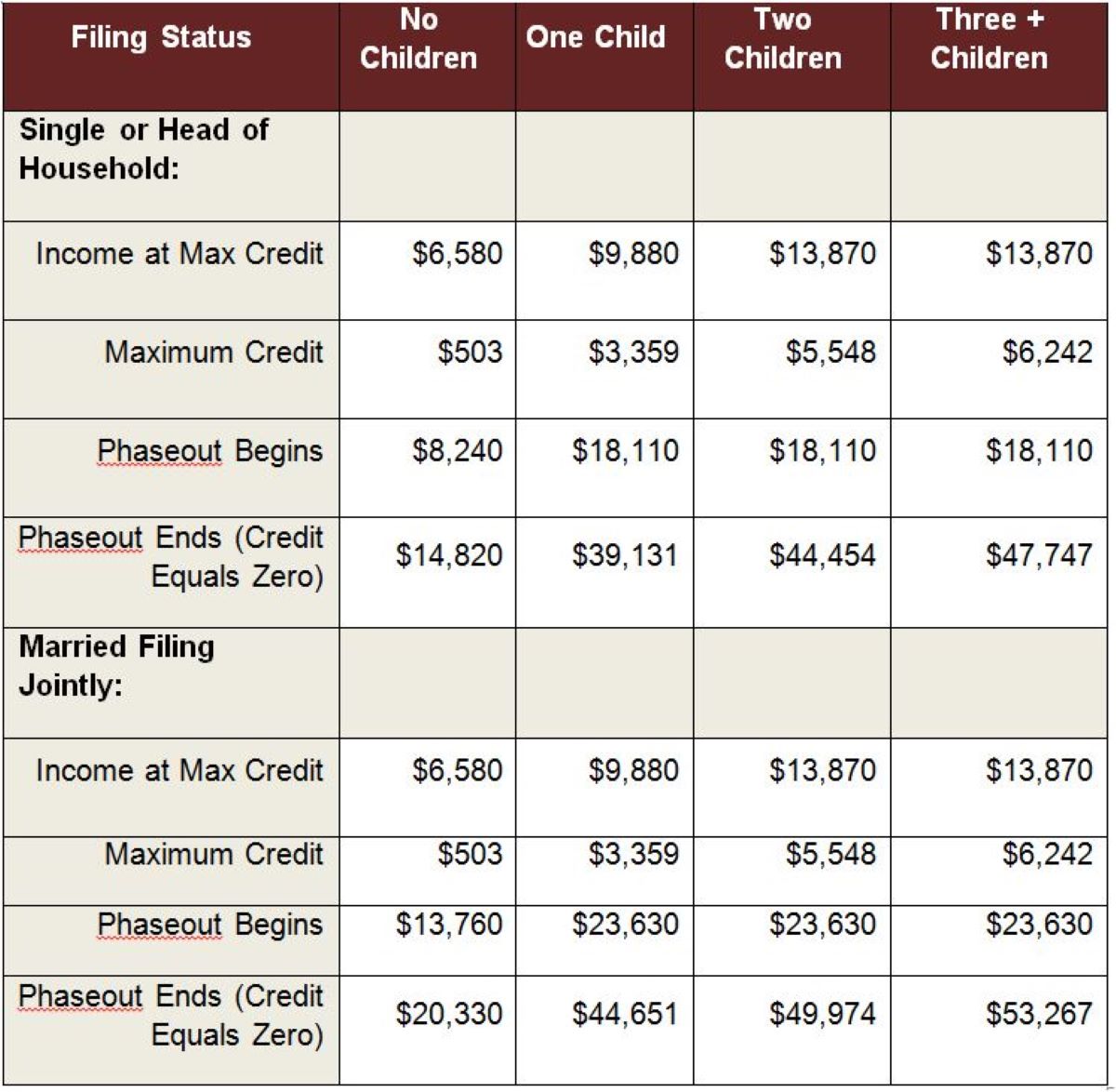

Finance
Why Is Vision Insurance Separate?
Published: November 11, 2023
Explore why vision insurance is often separate from regular health insurance and how it impacts your finances. Discover the benefits and options available.
(Many of the links in this article redirect to a specific reviewed product. Your purchase of these products through affiliate links helps to generate commission for LiveWell, at no extra cost. Learn more)
Table of Contents
Introduction
When it comes to insurance, many people are familiar with health insurance, car insurance, and homeowner’s insurance. However, one type of insurance that often puzzles individuals is vision insurance. Why is vision insurance separate from general health insurance? In this article, we will explore the reasons behind this separation and delve into the world of vision insurance.
Vision insurance is designed to specifically cover the costs associated with eye care and vision correction. This can include expenses related to routine eye exams, prescription glasses, contact lenses, and even procedures like LASIK surgery. While some individuals may assume that vision care is included in their health insurance plans, this is not always the case.
So, why is vision insurance separate? One reason is that vision care is considered a specialty service, much like dental care, rather than a fundamental aspect of general health. While our eyes greatly impact our overall well-being, vision care is often seen as a specialized area that requires specific expertise.
Another factor that contributes to the separation of vision insurance is the different providers involved. In many cases, health insurance policies are offered through businesses and organizations, while vision insurance is more commonly available through separate vision care providers. This specialization allows these providers to focus solely on vision-related services and coverage.
In addition, vision insurance typically operates with its own network of providers, which may include optometrists, ophthalmologists, and optical retailers. These providers are specifically trained in diagnosing and treating eye conditions and helping individuals maintain optimal eye health. By having a separate insurance plan for vision care, individuals can have access to a network of eye care professionals who specialize in serving their specific needs.
It’s important to note that not all individuals opt for vision insurance. Some people may choose to rely on general health insurance for routine eye exams or cover the costs of vision care out-of-pocket. However, having separate vision insurance can provide a level of financial protection and peace of mind when it comes to unexpected eye care expenses.
Now that we have discussed why vision insurance is separate from general health insurance, let’s explore the coverage and benefits that vision insurance provides in more detail.
Understanding Vision Insurance
Vision insurance functions similarly to other types of insurance, such as health or dental insurance. It is a type of supplemental insurance that focuses specifically on the costs associated with eye care and vision correction. By having vision insurance, individuals can receive coverage for expenses related to regular eye exams, prescription glasses, contact lenses, and even certain eye surgeries.
One key aspect of understanding vision insurance is knowing the types of coverage it offers. The two common types of vision insurance plans are: vision benefits packages and discount vision plans.
A vision benefits package typically involves a set monthly premium in exchange for specific benefits. These benefits often include coverage for routine eye exams, a percentage of the cost of prescription eyewear, and discounts on other vision services. With this type of plan, individuals are usually required to pay a certain co-payment or deductible for each visit or service.
On the other hand, discount vision plans operate differently. Instead of paying a premium, individuals pay an annual membership fee in exchange for reduced rates on eye care services and products. Participants in discount vision plans may receive discounts on eye exams, glasses, and contact lenses when visiting participating providers.
It is important to carefully review the details of different vision insurance plans to understand the specific coverage and benefits they offer. Some plans may have limitations on the types of frames or lenses that are covered, or they may have specific networks of providers that participants must use in order to receive the full benefits of the plan.
In addition to understanding the types of coverage, it is important to be aware of any waiting periods or restrictions that may apply when enrolling in a vision insurance plan. Some plans may have waiting periods before certain services or benefits can be used, while others may have restrictions on the frequency of covered services.
Overall, vision insurance provides individuals with peace of mind when it comes to managing the costs of vision care. By having coverage for routine eye exams and vision correction, individuals can maintain optimal eye health and address any vision issues promptly. Prioritize your eye care and consider exploring the options available in vision insurance to ensure that you have the coverage you need for your eye health needs.
Reasons for Separate Vision Insurance
There are several reasons why vision insurance is separate from general health insurance. These reasons revolve around the specialized nature of vision care and the specific needs of individuals when it comes to maintaining optimal eye health. Let’s explore some of the main reasons for the separation:
- Focus on specialized care: Vision care requires specialized knowledge and expertise. Eye doctors, known as optometrists or ophthalmologists, undergo years of education and training to diagnose and treat various eye conditions. By having separate vision insurance, individuals can access a network of these specialized providers who are specifically trained to address vision-related issues.
- Customized coverage: Vision insurance allows for focused coverage on eye care and vision correction. Unlike general health insurance, which covers a wide range of medical services, vision insurance can cater specifically to the needs of individuals by providing coverage for routine eye exams, prescription glasses, contact lenses, and even certain eye surgeries. This customization ensures that individuals have financial assistance when it comes to maintaining their eye health.
- Cost management: Vision care expenses can add up quickly, especially when individuals require regular eye exams or need to purchase prescription eyewear. By having separate vision insurance, individuals can better manage these costs and avoid unexpected financial burdens. Vision insurance plans often offer discounts and financial assistance for various vision-related services, helping individuals save money in the long run.
- Specialized providers and networks: Vision insurance typically operates with its own network of providers, including optometrists, ophthalmologists, and optical retailers. These providers are specifically trained in diagnosing and treating eye conditions, and they may offer a wider selection of eyewear options. This specialized network ensures that individuals have access to the best possible care and a variety of options when it comes to choosing eyewear.
- Separate administration and pricing: Vision insurance is often administered separately from general health insurance, with different pricing structures and enrollment options. This separation allows individuals to have the flexibility to choose the vision insurance plan that best suits their needs without being tied to a specific health insurance provider.
Overall, the separation of vision insurance from general health insurance allows for a more focused and specialized approach to eye care. It ensures that individuals have access to a network of providers who specialize in vision-related services and provides customized coverage options to address their specific eye health needs. By having separate vision insurance, individuals can prioritize their eye care and have peace of mind knowing that they have financial assistance for routine eye exams and vision correction.
Coverage and Benefits of Vision Insurance
Vision insurance provides coverage for a range of eye care services and products, offering numerous benefits for individuals seeking to maintain good eye health and correct their vision. Let’s explore some of the key coverage and benefits typically offered by vision insurance:
- Routine Eye Exams: Vision insurance often covers the cost of routine eye exams, allowing individuals to visit an optometrist on a regular basis for comprehensive eye examinations. These exams help detect early signs of eye conditions, assess visual acuity, and determine any corrective measures necessary. Regular eye exams are essential for maintaining optimal eye health and addressing any potential vision issues.
- Prescription Eyewear: Vision insurance typically provides coverage for prescription glasses. This includes the cost of lenses and frames, allowing individuals to choose from a variety of options that suit their preferences and corrective needs. Some insurance plans may also cover contact lenses, providing financial assistance for those who prefer this alternative to traditional glasses.
- Discounts on Eyewear: In addition to coverage for prescription eyewear, vision insurance often offers discounts on additional pairs of glasses or sunglasses. This can be beneficial for individuals who may want multiple pairs for different occasions or wants to have a backup pair in case of damage or loss.
- Specialty Vision Services: Depending on the plan, vision insurance may cover certain specialty vision services. This can include the cost of vision therapy, which is a specialized program designed to treat specific vision-related conditions such as lazy eye or binocular vision disorder. It may also include coverage for other medically necessary procedures like cataract surgery or refractive surgeries such as LASIK.
- Additional Benefits: Some vision insurance plans offer additional benefits beyond routine eye exams and prescription eyewear. These benefits may include coverage for specific vision-related treatments, such as retinal imaging or glaucoma screenings. Some plans may also cover certain non-prescription eye care products like cleaning solutions for contact lenses.
It is important to note that coverage and benefits can vary depending on the specific vision insurance plan. Some plans may have limitations on the frequency of covered services or the types of lenses and frames that are covered. It’s always advisable to carefully review the details of your vision insurance policy to understand the specific coverage and any associated costs or limitations.
Overall, vision insurance provides valuable coverage for routine eye exams, prescription eyewear, and potentially other vision-related services. By having this coverage, individuals can proactively manage their eye health, address any vision issues, and reduce the financial burdens associated with eye care. A comprehensive vision insurance plan can contribute significantly to maintaining optimal eye health and ensuring clear vision.
Cost and Enrollment Options
When considering vision insurance, it is important to understand the cost and enrollment options available. The cost of vision insurance can vary depending on various factors, including the type of plan, the level of coverage, and the provider. Let’s explore the common cost and enrollment options associated with vision insurance:
- Monthly Premium: Many vision insurance plans require a monthly premium payment in exchange for the coverage and benefits provided. The premium amount can vary depending on the plan and the level of coverage desired. It is important to compare different plans to find one that fits within your budget.
- Co-payments and Deductibles: Some vision insurance plans may require co-payments or deductibles for certain services. A co-payment is a fixed amount paid at the time of service, while a deductible is an amount that must be paid out-of-pocket before the insurance coverage kicks in. It is important to check the details of your chosen plan to understand any co-payments or deductibles that may apply.
- Enrollment Options: Vision insurance can be obtained through various means. It may be offered as an optional benefit through your employer, allowing you to enroll during your company’s open enrollment period. Additionally, you can purchase individual vision insurance directly from insurance providers or through an insurance marketplace. Some vision insurance plans may also be available as add-ons to existing health insurance plans.
- Network of Providers: Vision insurance plans typically have a network of preferred providers, including optometrists, ophthalmologists, and optical retailers. It is important to check if your preferred eye care provider is included in the plan’s network. Visiting an in-network provider often results in greater coverage and cost savings.
- Out-of-Network Options: While most vision insurance plans encourage the use of in-network providers, some plans also offer out-of-network options. If you have a preferred eye care provider who is not in the plan’s network, you may still receive partial coverage, but it may be subject to higher out-of-pocket expenses.
- Additional Services: Some vision insurance plans may offer additional services beyond routine eye exams and prescription eyewear. These services may include discounts on laser vision correction procedures or more extensive coverage for specialty vision services. The availability of these services may vary depending on the plan and provider.
Before enrolling in a vision insurance plan, it is important to thoroughly review the details, including the cost, coverage, and provider network. Consider your eye care needs, budget, and preferences to select a plan that suits your requirements. Additionally, don’t hesitate to reach out to insurance providers or insurance brokers for assistance in understanding different options and selecting the most suitable vision insurance plan for you.
Remember, investing in vision insurance can provide peace of mind and help you maintain good eye health by offsetting the costs of routine eye exams, prescription eyewear, and potentially other vision-related services.
Comparison with Health Insurance
Understanding the differences between vision insurance and health insurance is crucial in order to make informed decisions about your overall healthcare coverage. While health insurance provides coverage for a wide range of medical services, vision insurance is specifically focused on eye care and vision correction. Let’s compare some key aspects of vision insurance and health insurance:
Coverage: Health insurance generally covers a broad range of healthcare services, including doctor visits, hospital stays, surgeries, and medications. It may also provide coverage for some preventive care services, such as vaccinations. On the other hand, vision insurance specifically covers services related to eye care, such as routine eye exams, prescription glasses, contact lenses, and certain eye surgeries. While some health insurance plans may include limited coverage for basic eye exams, vision insurance offers more comprehensive coverage for all aspects of eye care.
Specialized Providers: Health insurance typically involves a wide network of healthcare providers, including primary care physicians, specialists, and hospitals. In contrast, vision insurance often has its own network of specialized eye care providers, such as optometrists and ophthalmologists. These providers have expertise in diagnosing and treating eye conditions and can address vision-related issues more comprehensively.
Costs: Health insurance and vision insurance differ in terms of their costs and payment structures. Health insurance often involves monthly premiums, deductibles, co-payments, and co-insurance. The cost of health insurance can be influenced by factors such as age, location, and the level of coverage. Alternatively, vision insurance may have lower monthly premiums and co-payments, as the scope of coverage is more focused on specific eye care services. However, vision insurance may have limitations on the frequency of covered services or the types of eyewear that are covered.
Enrollment: Health insurance is typically obtained through employers, government programs, or individual marketplaces. Open enrollment periods or qualifying events usually determine when individuals can enroll or make changes to their health insurance plans. On the other hand, vision insurance can be purchased separately from health insurance or as an add-on option to existing health insurance plans. Enrollment options may vary depending on the chosen vision insurance provider.
Coordination: Health insurance and vision insurance often operate independently of each other. While some health insurance plans may include limited vision benefits, the coverage is generally separate. This means that individuals may need separate vision insurance to receive comprehensive coverage for eye care services. However, it is important to note that certain health conditions may impact vision health, and in these cases, coordination between health insurance and vision insurance may be necessary to address related eye care needs.
Understanding the distinctions between vision insurance and health insurance is crucial for managing your healthcare needs effectively. By having both types of coverage, individuals can ensure comprehensive care for both general health and eye health. It is important to review the specifics of each insurance plan and assess individual needs to determine the best coverage options for optimal overall healthcare.
Frequently Asked Questions about Vision Insurance
Here are answers to some common questions regarding vision insurance:
- Is vision insurance the same as health insurance?
No, vision insurance is separate from health insurance. While health insurance covers a wide range of medical services, vision insurance specifically focuses on eye care and vision correction. - What does vision insurance typically cover?
Vision insurance typically covers routine eye exams, prescription glasses, contact lenses, and, in some cases, certain eye surgeries. The specific coverage will depend on the insurance plan. - Are there limitations on coverage?
Yes, there may be limitations on coverage, such as the frequency of covered services or the types of eyewear that are covered. It is important to review the details of your vision insurance plan to understand any limitations or restrictions. - How much does vision insurance cost?
The cost of vision insurance can vary depending on factors such as the type of plan, the level of coverage, and the provider. Monthly premiums, co-payments, and deductibles are some of the costs associated with vision insurance. It is advisable to compare different plans and consider your budget and eye care needs when selecting a plan. - Can I use my vision insurance with any eye care provider?
Vision insurance plans often have a network of preferred providers. While it is generally recommended to visit in-network providers to maximize coverage and reduce costs, some plans may offer out-of-network options with partial coverage. - Can I use vision insurance for LASIK or other eye surgeries?
Some vision insurance plans may provide coverage for certain eye surgeries, including LASIK. However, coverage will vary depending on the plan and may have limitations. - When is the best time to enroll in vision insurance?
The best time to enroll in vision insurance is typically during your employer’s open enrollment period, if available. However, individual vision insurance plans can be purchased at any time, subject to the provider’s enrollment options. - Can I have vision insurance without health insurance?
Yes, you can have vision insurance without health insurance. Vision insurance is often offered as a standalone plan or as an add-on option to existing health insurance plans. - Is vision insurance worth it?
Whether vision insurance is worth it depends on your individual eye care needs and preferences. If you require regular eye exams, prescription eyewear, or anticipate the need for eye surgeries, vision insurance can provide financial assistance and peace of mind in managing these costs.
It is important to review the specific details of your vision insurance plan as each plan can vary in terms of coverage, costs, and enrollment options. If you have any specific questions or concerns, it is advisable to reach out to your insurance provider or insurance broker for personalized assistance.
Conclusion
Vision insurance offers individuals the opportunity to have specialized coverage and financial protection for their eye care needs. While separate from general health insurance, vision insurance focuses specifically on services related to eye exams, prescription eyewear, contact lenses, and certain eye surgeries. It provides coverage for routine eye care and helps individuals manage the costs associated with maintaining good eye health and clear vision.
The separation of vision insurance from health insurance allows for a more specialized approach to eye care. By having access to a network of eye care professionals who specialize in diagnosing and treating eye conditions, individuals can receive tailored care and ensure optimal eye health.
Vision insurance provides a range of benefits, including coverage for routine eye exams and prescription eyewear, as well as potential discounts on additional pairs of glasses or sunglasses. Some plans may even cover specialty vision services or offer benefits beyond basic eye care.
When considering vision insurance, it is important to review the specific coverage details, costs, and enrollment options. Compare different plans to find one that suits your budget and individual eye care needs. Additionally, ensure that your preferred eye care providers are in the plan’s network, or check if out-of-network options are available.
Overall, vision insurance offers peace of mind by providing coverage for essential eye care services. It allows individuals to proactively manage their eye health, address any vision issues promptly, and alleviate some of the financial burdens associated with eye care expenses.
Whether you rely solely on general health insurance or opt for separate vision insurance, prioritizing regular eye exams and making your eye health a priority is essential. Take the time to explore the options available to you and consider the long-term benefits of having dedicated vision insurance coverage to safeguard your vision and maintain optimal eye health.














